[GSE2022] Forum on the New Ecology of Regional Smart Education
date:2022-09-29 14:54author:adminsource:Smart Learning Instituteviews:
Report on the Construction Progress of Demonstration Zone of Smart Education
The Demonstration Zone of Smart Education is the one of the key tasks of Education Informatization 2.0 Action Plan, and it is also an innovative action for the development of regional education informatization. Since the start of the project, the regions have carried out bold explorations and beneficial attempts based on the local conditions, and formed some characteristics and spotlights in terms of environment, model, service and governance. This book summarizes excellent cases and shares experiences/paradigms, providing reference for the development of regional smart education.
In the face of the new situation, new requirements and new tasks of digital transformation and intelligent upgrading of education, the Demonstration Zone of Smart Education will seize the current opportunities to form a unique development path of regional smart education, and build new pattern and new ecology of smart education.
This book can be used as a reference for educational policymakers, researchers, principals of primary and secondary schools, teachers, and industry practitioners in the field of smart education.
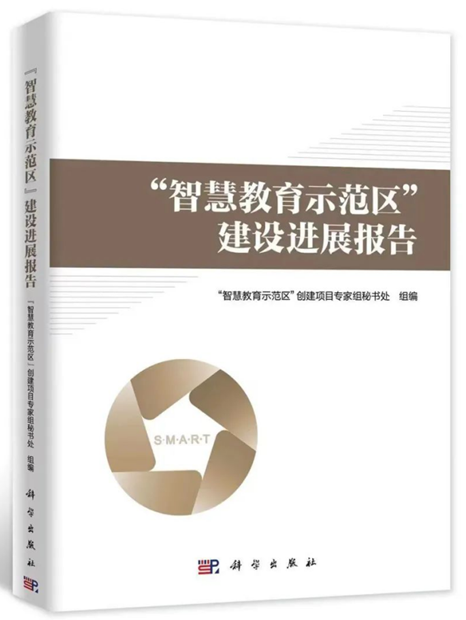

Mr XU Lin, director of China Educational Technology, Center for Educational Technology and Resource Development, Ministry of Education, P.R.C (National Center for Educational Technology, NCET)
Mr XU Lin, director of China Educational Technology, Center for Educational Technology and Resource Development, Ministry of Education, P.R.C (National Center for Educational Technology, NCET), introduced the effect of a “Smart Education of China” Platform on the aspects of the promotion of educational reform, the inclusive sharing of high-quality resources, educating people with home and school collaboration, and the deep integration of information technology and curriculum.
Development of high-quality regional education
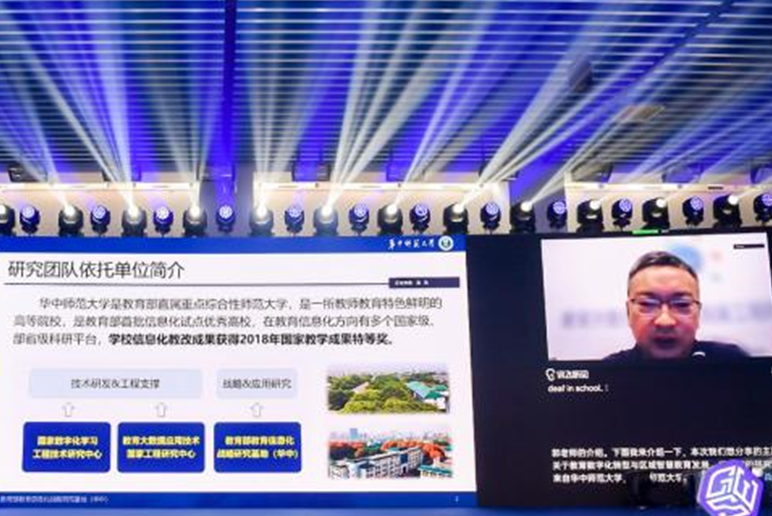
Professor WU Di, Executive Deputy Director of Education Informatization Strategic Research Base (Central China) of the Ministry of Education of P.R.C, gave a presentation on “Digital Transformation in Education and the Development of Regional Smart Education”. He emphasized that the development of smart education needs to consolidate the "digital base", and the smart education pilot zone should become the "pioneer" of the digital transformation in education. During the promotion process, we should focus on teaching innovation, education evaluation reform, teacher professional development and education governance optimization. In the future, the amalgamation of differentiated teaching, personalized learning, refined management, data-driven teaching research, and intelligent services will build a better education landscape.
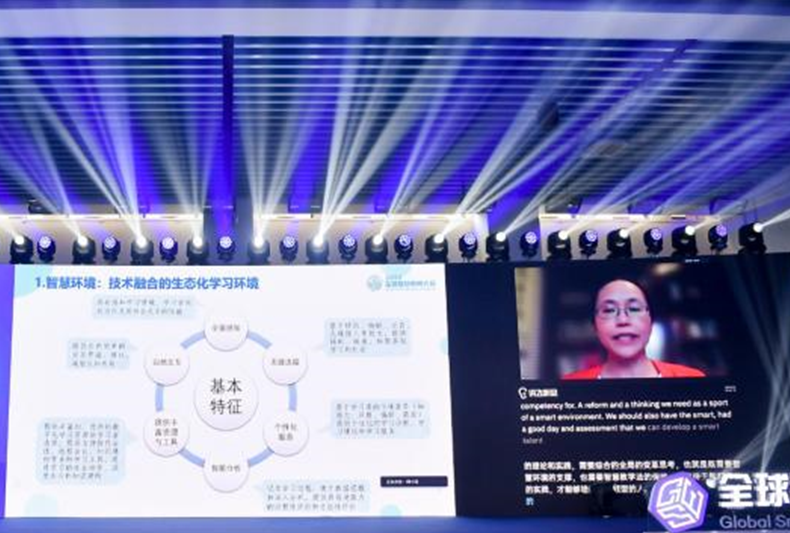
Professor GU Xiaoqing, a member of the secretariat of the project expert group for the construction of a “Smart Education Pilot Zone”
Professor GU Xiaoqing, a member of the secretariat of the project expert group for the construction of a “Smart Education Pilot Zone”, focused on the development and future vision of smart education. She explained that the fundamental essence of smart education could be highly summarized as human-machine collaboration, which is embodied in precision, individuality, optimization, collaboration, thinking and creation. The practice of smart education needs to determine the bottom-line principle of human-machine collaboration and follow the learner-centered humanistic learning concept. The future of smart education needs awareness of the future trend, which looks forward to the future and reflects on the present.
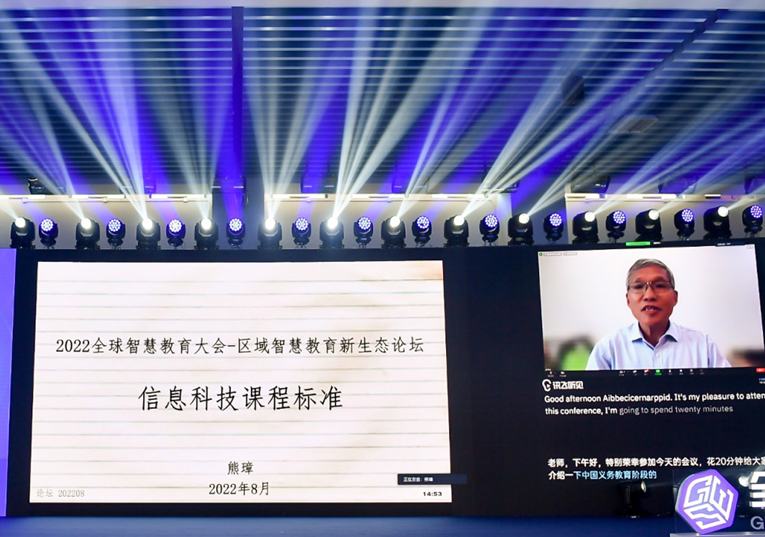
Professor XIONG Zhang, head of the Expert Group on Information Technology Curriculum Standards for Compulsory Education of the Ministry of Education
Professor XIONG Zhang, head of the Expert Group on Information Technology Curriculum Standards for Compulsory Education of the Ministry of Education, introduced the “Information Technology Curriculum Standards". He pointed out that we are already in a new social form that is different from the traditional information society - the online society, which puts forward higher requirements for cultivating students' literacy in quality education. Students in the online society must have information awareness and be equipped with computing thinking, digital learning, and innovative ability. They shall also be able to take responsibility for the information society. The discipline logic of the information technology curriculum in compulsory education pursues big concept, theme, experiences and integration, which are interrelated and jointly serves quality education.

Professor Tak-Wai Chan, the founder of the Global Chinese Conference of Computer in Education (GCCCE)
Professor Tak-Wai Chan, the founder of the Global Chinese Conference of Computer in Education (GCCCE), believed education design is to design the future, and we should pay attention to interest-driven education.
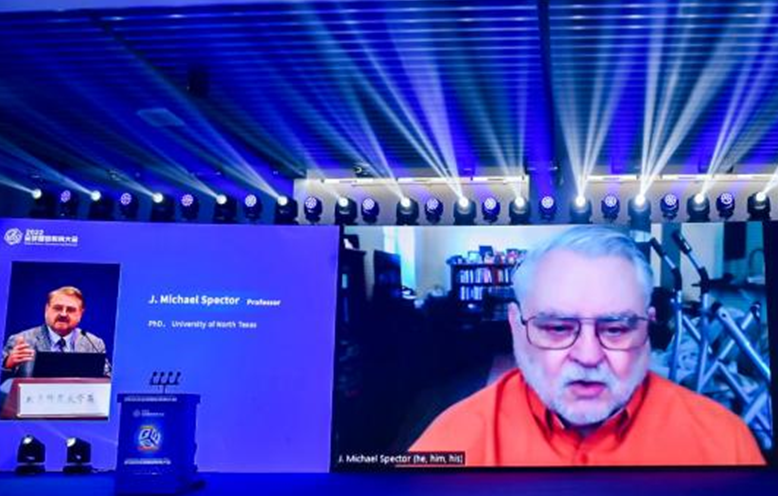
Professor J. Michael Spector from the University of North Texas
Best Practices of Smart Education in Regions
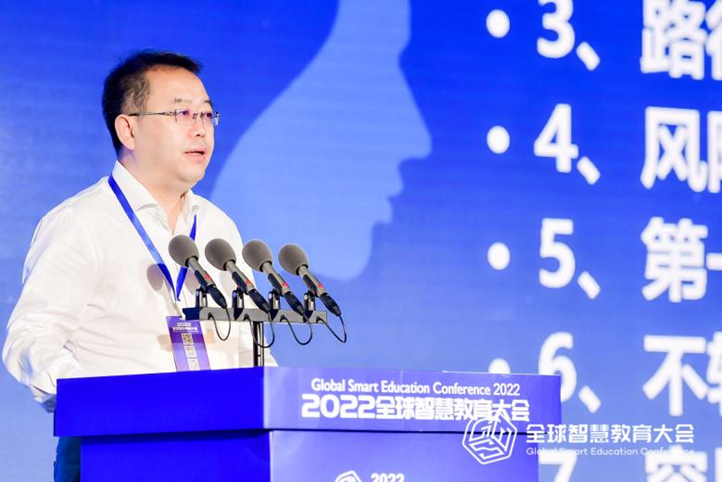
Mr LI Yongzhi, deputy director of the Shanghai Municipal Education Commission

Ms XIONG Qiuju, director of the Education Bureau of Changning district in Shanghai
Ms XIONG Qiuju, director of the Education Bureau of Changning district in Shanghai, pointed out three dilemmas of regional education: uneven resources, insufficient teaching, and lack of operation and maintenance. The path of digital transformation at Changning district will be based on the digital base and build regional smart education with characteristics of standardization and personalization.
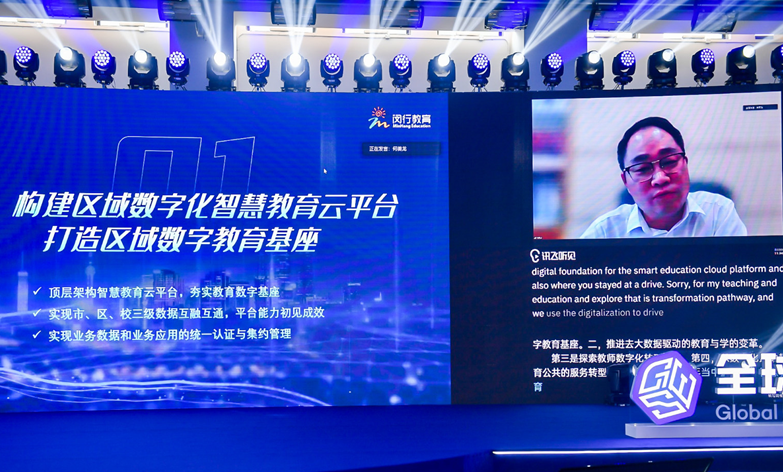
Mr HE Meilong, director of the Education Bureau of Minhang district in Shanghai
Mr HE Meilong, director of the Education Bureau of Minhang district in Shanghai, focused on the construction of a digital smart education platform, big data-driven teaching and learning, digital transformation for teachers and digital education public services. He also described the specific practice of how digital transformation promotes the transformation of smart education in the Minhang district.

Mr ZHANG Xianguo, director of the Information Technology Department of the Beijing Municipal Education Commission
Mr ZHANG Xianguo, director of the Information Technology Department of the Beijing Municipal Education Commission, shared the achievements of Beijing’s practice of digital transformation in education, including effectively guaranteeing online teaching, innovating education and teaching approaches, supporting individualized and independent learning, exploring multiple educational evaluation methods, promoting teacher professional development, and planning intelligent education models. Aligning the path of digital transformation in education – “one base”, “six scenes”, and “three spaces” – Beijing will initially form a new future-oriented education ecology by 2025.
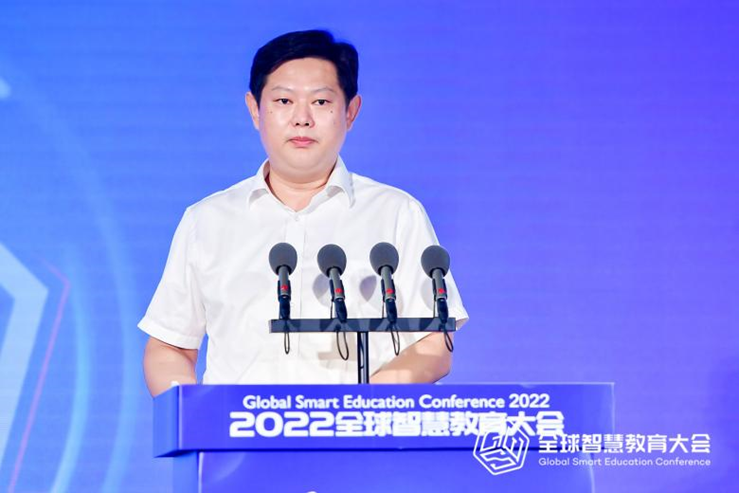
Mr GAO Wei, director of the Education Commission of Dongcheng District in Beijing
Mr GAO Wei, director of the Education Commission of Dongcheng District in Beijing, introduced the progress of smart education construction in Dongcheng District. The district has formed a unique development path around the “1+7+N” smart education service system. At present, “1” “data brain” has begun to take shape, “7” projects have been solidly advanced, and several (“N”) future schools are in exploration.
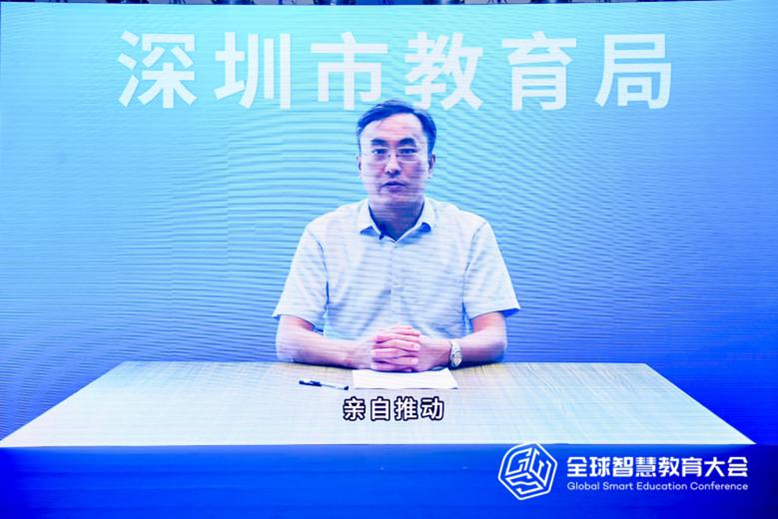
Mr QIU Chengyu, deputy director of Shenzhen Education Bureau
Mr QIU Chengyu, deputy director of Shenzhen Education Bureau, introduced the development of smart education in Shenzhen. Shenzhen has adopted the systematic top-level design of “integrated empowerment, four innovations and six intelligences, and eight scenarios” and makes the achievements in smart governance, teaching reform, resource construction, talent team building, and mechanism innovation. It realizes the goal of “improving quality and innovation through digital transformation and reducing the burden and increasing efficiency through intelligent upgrade”.
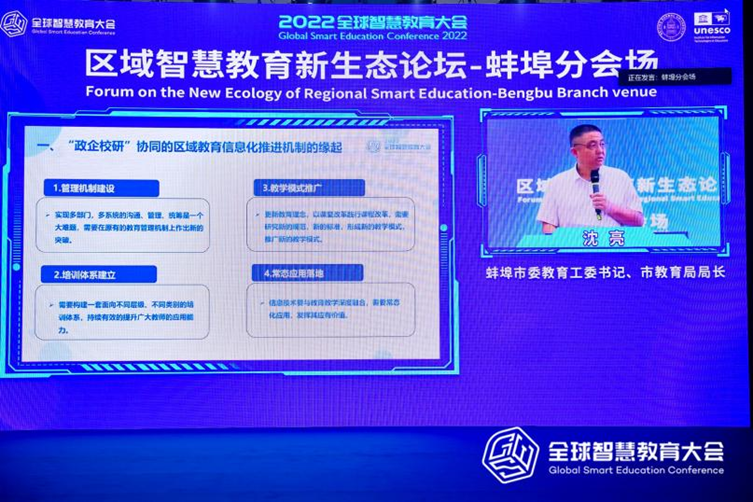
Mr SHENG Liang, director of the Education Bureau at Bengbu
Mr SHENG Liang, director of the Education Bureau at Bengbu, shared the promotion of education informatization mechanism based on the collaboration of government, enterprise, school, and research. He introduced the practices in the areas of organizational construction, teacher training, subject research and education governance, which benefits the co-construction and co-sharing of resources, the in-depth promotion of application, the innovation of teaching mode and the construction of teacher teams.
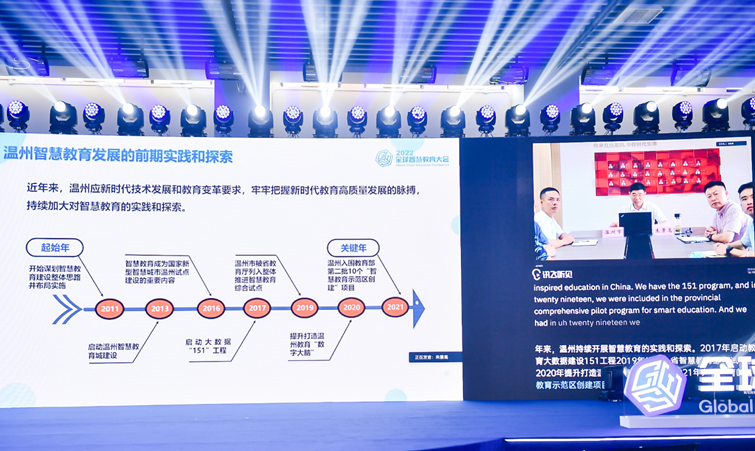
Mr ZHU Jinggao, deputy director of the Education Bureau of Wenzhou
Mr ZHU Jinggao, deputy director of the Education Bureau of Wenzhou, introduced the progress of smart education construction in Wenzhou. The city has built a "1+3+X" construction system of "digital brain", formed an education data center, established three digital service centers, supported multiple educational application scenarios, and realized data-enabled education.
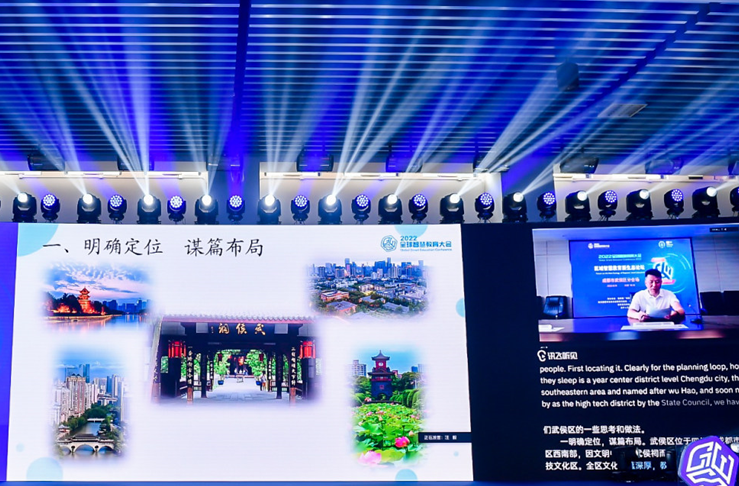
Mr WANG Yi, director of the Education Bureau of Wuhou district in Chengdu
Mr WANG Yi, director of the Education Bureau of Wuhou district in Chengdu, introduced the practical exploration of Wuhou’s smart education. Wuhou district mainly focuses on three areas: teaching, service and governance, and three tasks: building new ecology of smart education, new forms of educational services and intelligent governance, with an aim to provide a suitable education for students.
Best practices of smart education in schools
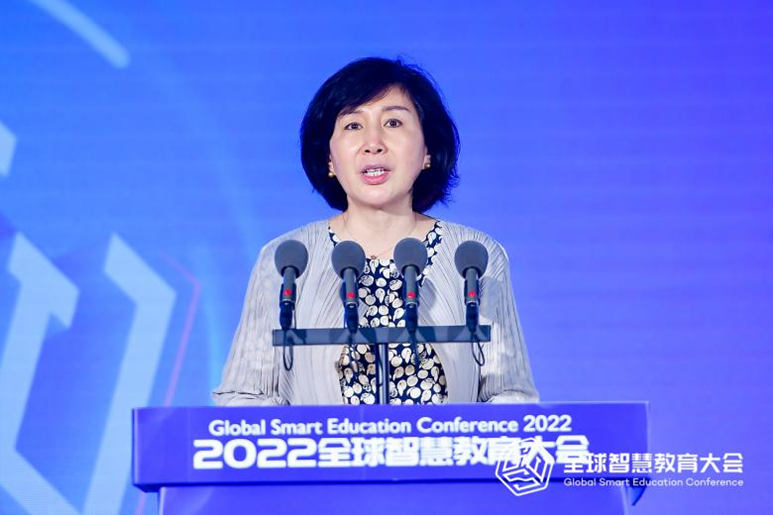
Ms DOU Guimei, principal of Tsinghua University Primary School
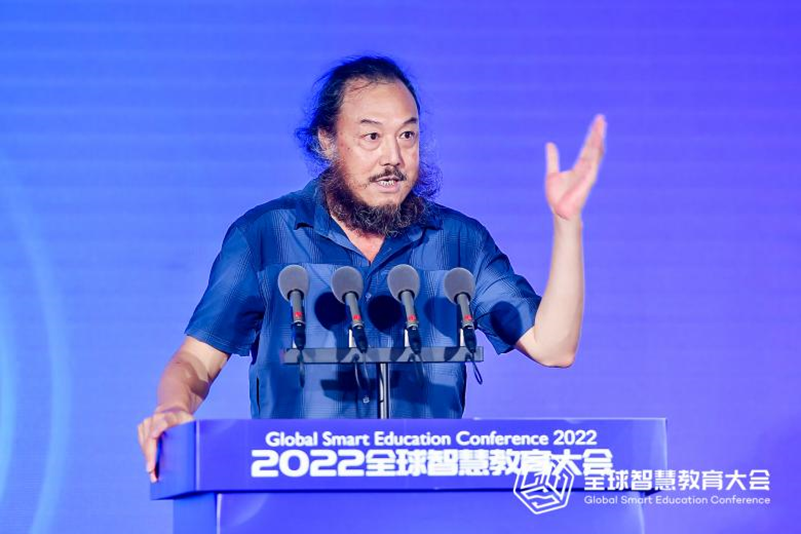
Mr MA Long, director of the Sports Arts Training Department of the Institute of Educational Sciences
Mr MA Long, director of the Sports Arts Training Department of the Institute of Educational Sciences, introduced how AI is applied for data collection and application of primary school sports load and how it promotes the effective development of sports education at Dongcheng schools.
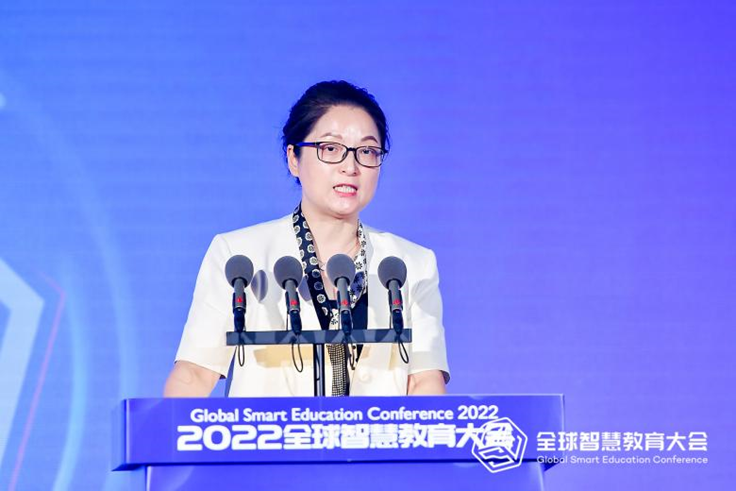
Ms XU Hongyan, principal of the Happiness Primary School in Shaya County of Xinjiang Uygur autonomous region
Ms XU Hongyan, principal of the Happiness Primary School in Shaya County of Xinjiang Uygur autonomous region, is an educator who aided Xinjiang. She shared her experiences of leading a group of young teachers to go deep into the frontier, carrying out group-style teaching and research, and leading the change in local education and teaching mode in the past two years.
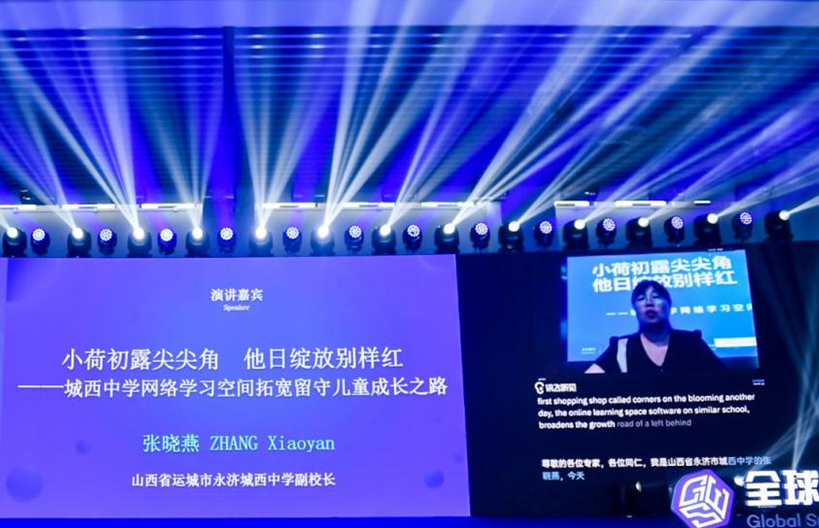
Ms ZHANG Xiaoyan, vice principal of Yongji Chengxi Middle School in Yuncheng city
Ms ZHANG Xiaoyan, vice principal of Yongji Chengxi Middle School in Yuncheng city, shared a case on how online learning space broadens the growth path of left-behind children.

Ms GONG Mingxing, a senior teacher at Donghu High School in Yiling District in Hubei Province
Ms GONG Mingxing, a senior teacher at Donghu High School in Yiling District in Hubei Province, introduced the achievements of the school's practice of labor education based on the smart education platform.
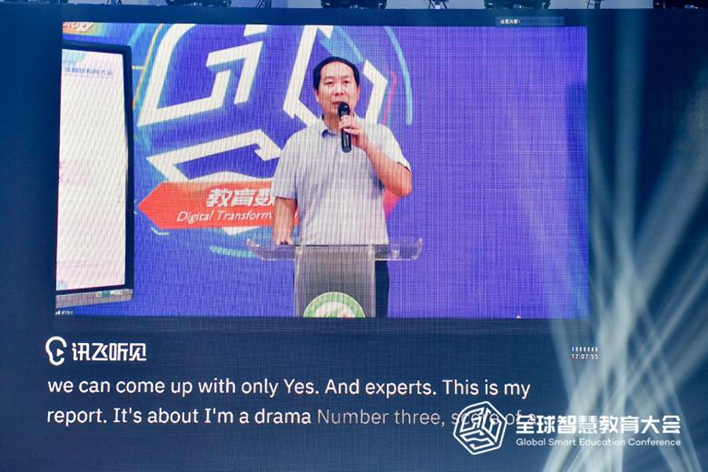
Mr HANG Ziping, vice principal of the Zhanggongshan No. 3 Primary School at Bengbu City
Mr HANG Ziping, vice principal of the Zhanggongshan No. 3 Primary School at Bengbu City, shared the school's exploration and innovation of online and offline teaching models, which was based on the “Smart Education of China” Platform (https://www.zxx.edu.cn/). It effectively helped to maintain undisrupted learning during COVID-19 outbreak.

Ms PENG Baobei, the principal of Erqiao Middle School in Wuhan City
Ms PENG Baobei, the principal of Erqiao Middle School in Wuhan City, presented the measures, effects and prospects of using the virtual experimental teaching system and the Wuhan Education Cloud to carry out normalized experimental teaching.
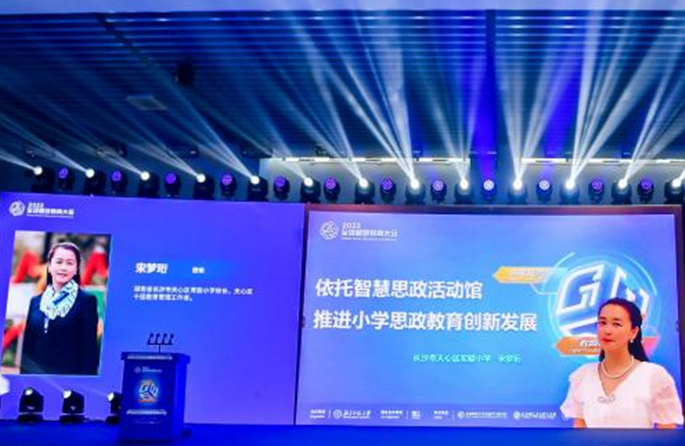
Ms SONG Mengheng, principal of Qingyuan Primary School at Tianxin District in Changsha City
Ms SONG Mengheng, principal of Qingyuan Primary School at Tianxin District in Changsha City, shared a school practice case of promoting the innovative development of primary schools' thinking and political education with "Smart Thinking and Political Activity Hall".
Smart Education Solutions for Challenges of Education
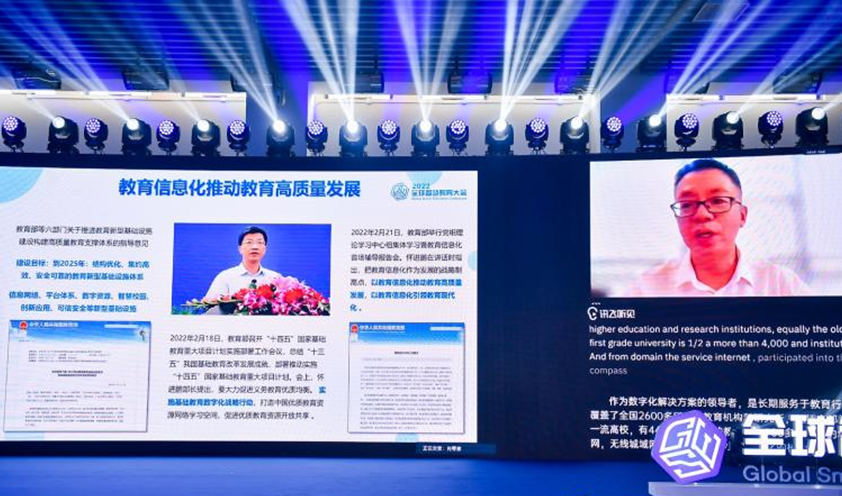
Mr XIAO Chunxi, General Manager of Industry BG Technical Department of H3C
Mr XIAO Chunxi, General Manager of Industry BG Technical Department of H3C, introduced the company's practice in promoting smart education through ideological and political education, high-quality "double reduction – reducing students’ homework and off-campus training burden", and education management.
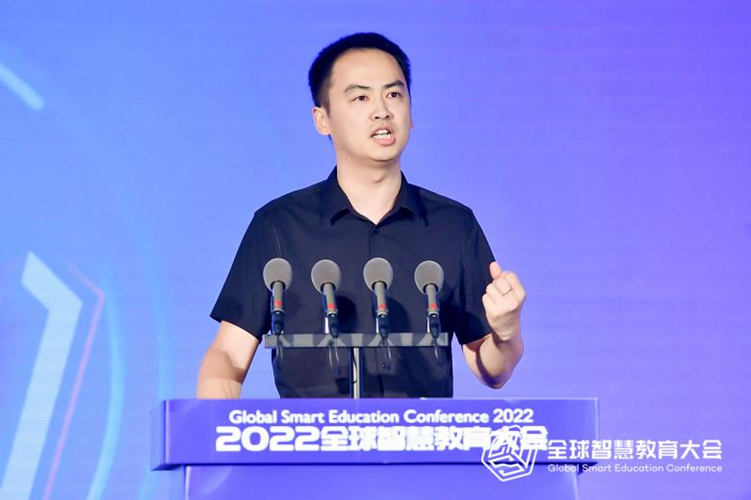
Mr ZHOU Jiafeng, vice president of iFLYTEK
Mr ZHOU Jiafeng, vice president of iFLYTEK, shared the practical case of how artificial intelligence empowers regional large-scale individualized teaching.

Mr JIN Xin, general manager of the Smart Education Division of Lenovo's major customer business group in China
Mr JIN Xin, general manager of the Smart Education Division of Lenovo's major customer business group in China, focused on teacher professional growth and explained Lenovo's technical solutions to break through the difficulties of teaching and research.

